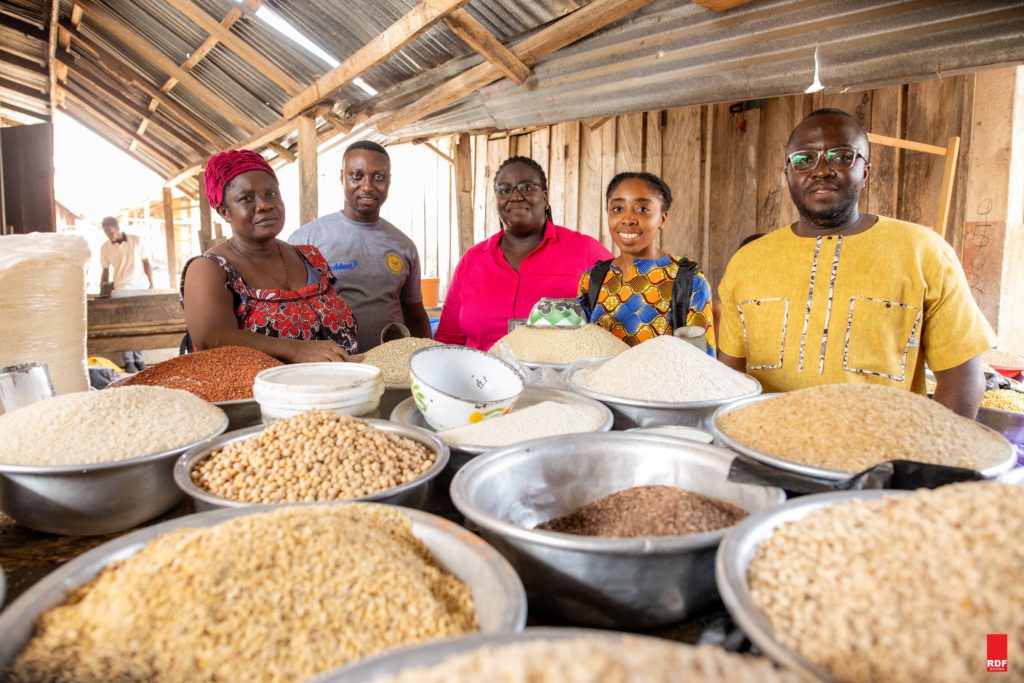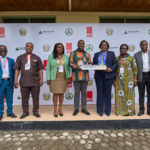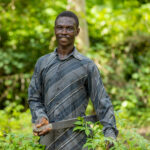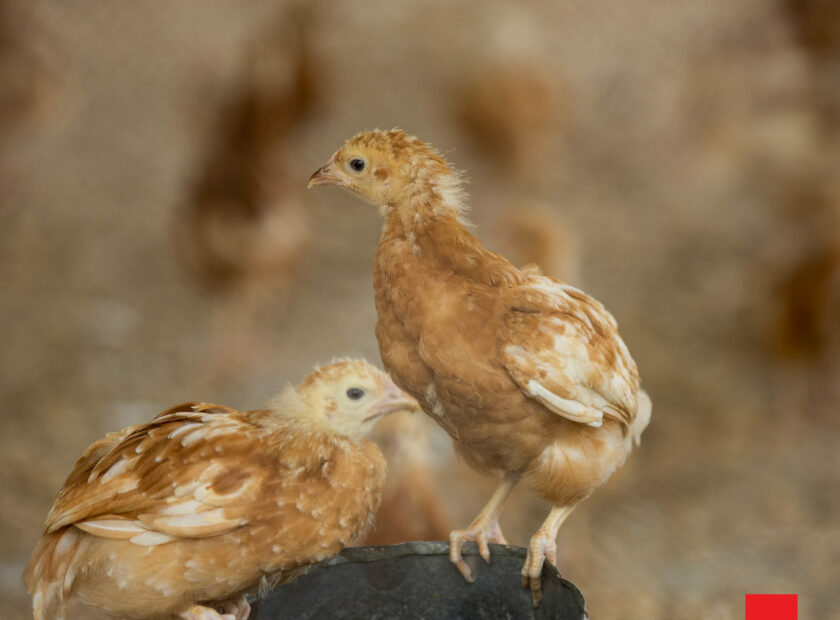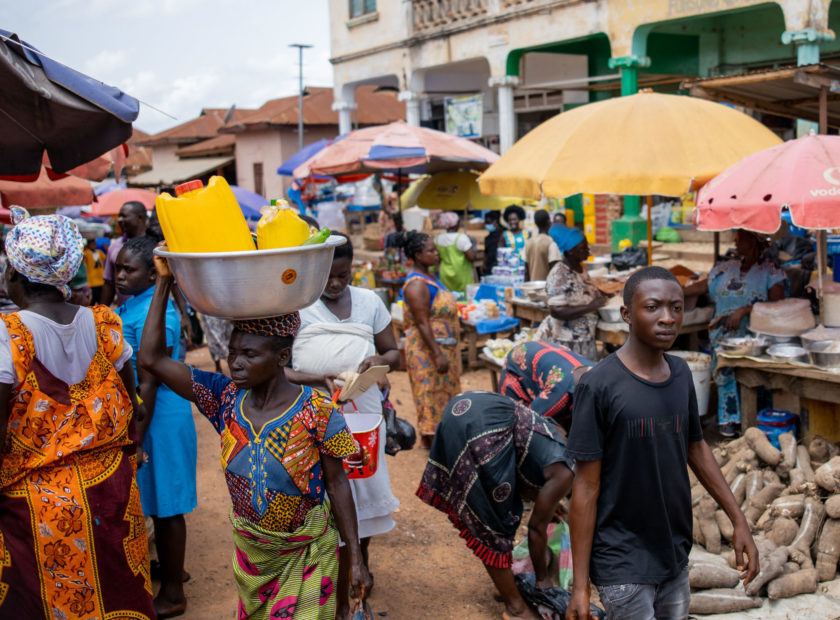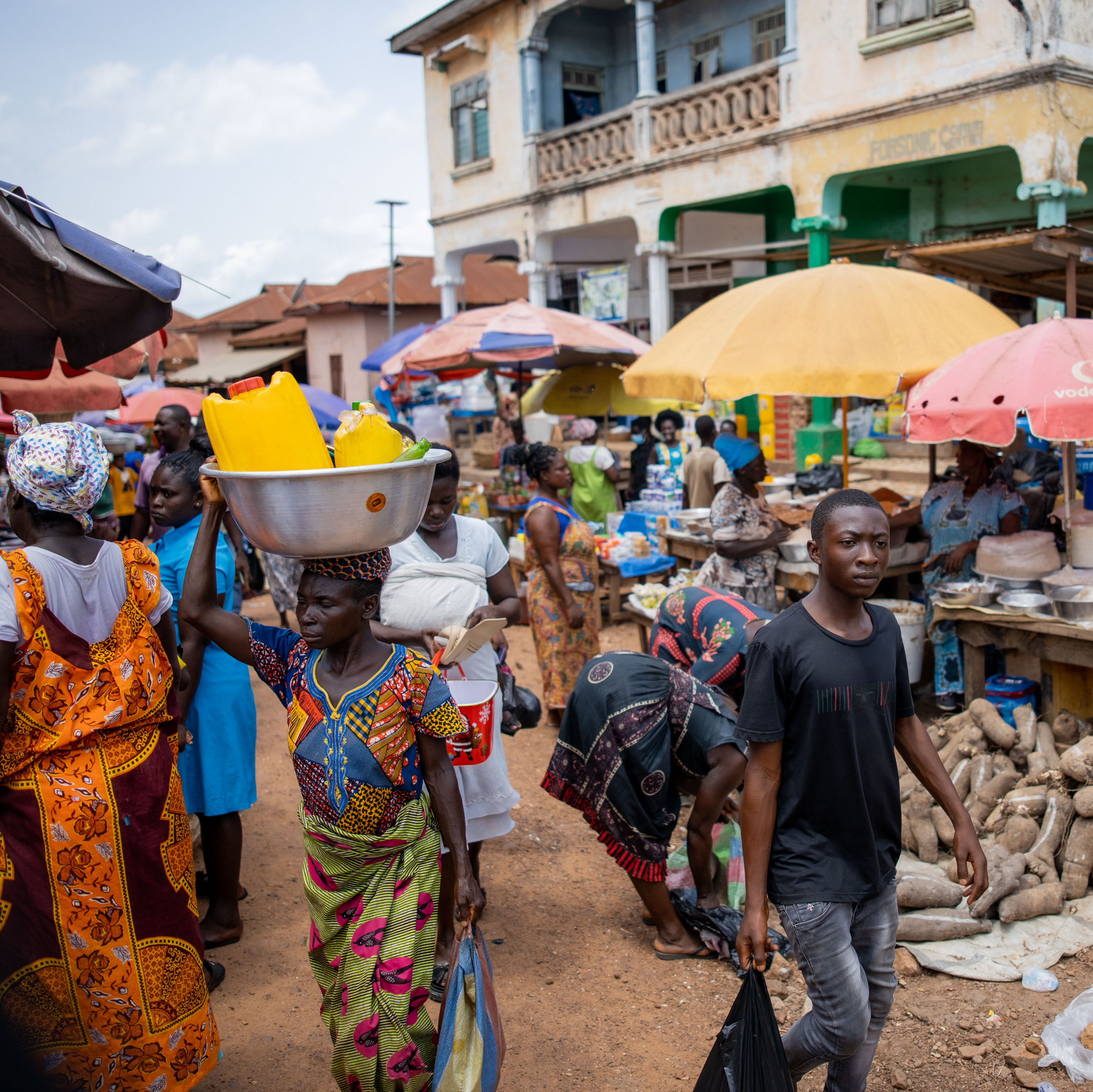
Making Funds Accessible for Foodstuffs Trading – The Bibiani Market Story
Happy reading!
It is a regular market day in the Bibiani Market. Traders are displaying their wares while making the most of their voices – from harmonious strains to discordant ones – and gestures are not left out of efforts to grab one’s attention. It is not unusual to meet the gaze of a trader whose eyes plead for your attention towards her goods; it could be a wink, a warm smile, or the ‘I am ready to engage you’ kind of countenance. In the marketplace, every effort counts.
For the prospective buyer, your likely assessment of the scenery is that business may be effortless for these traders who proudly display plump tomatoes, ‘fully-muscled’ garden eggs, bulky onions and colourful habanero peppers. Indeed, the colours in the marketplace are eye-pleasing! It is worth mentioning that there are untold stories behind all the colours, dins and bustle in the market. Here is a story about some of these traders; a story of some amazing women utilizing loan facilities procured from one of RDF’s partner financial institutions, Sefwiman Rural Bank.
Meet Mary
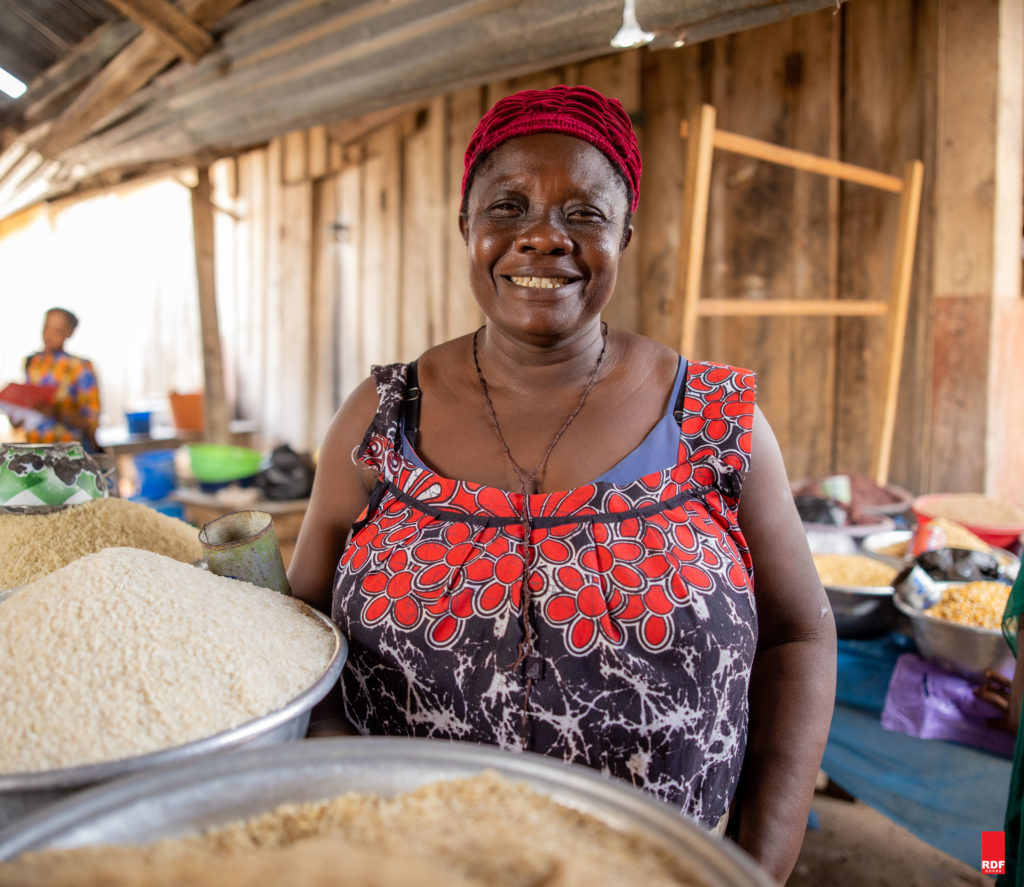
Mary Atobogah at her stall
Mary is a beneficiary of RDF’s line of credit facility made available to selected Rural and Community Banks (RCBs) committed to supporting the agriculture and renewable energy sectors. She has accessed the facility three times in three years to support her business including accessing the Asset Finance Facility to enable her to purchase a tricycle to improve the transportation of her goods. With the support provided, Mary is thriving and eager to move on to the next level in her business. Currently, she provides employment to three other women, helping solve the yawning problem of unemployment. She scores a point on providing income opportunities for women, in line with SDG Goal 5 which promotes gender equality and the empowerment of women and girls. The story has not always been so for Mary. Like many other businesses, trading foodstuffs requires funds to keep it running.
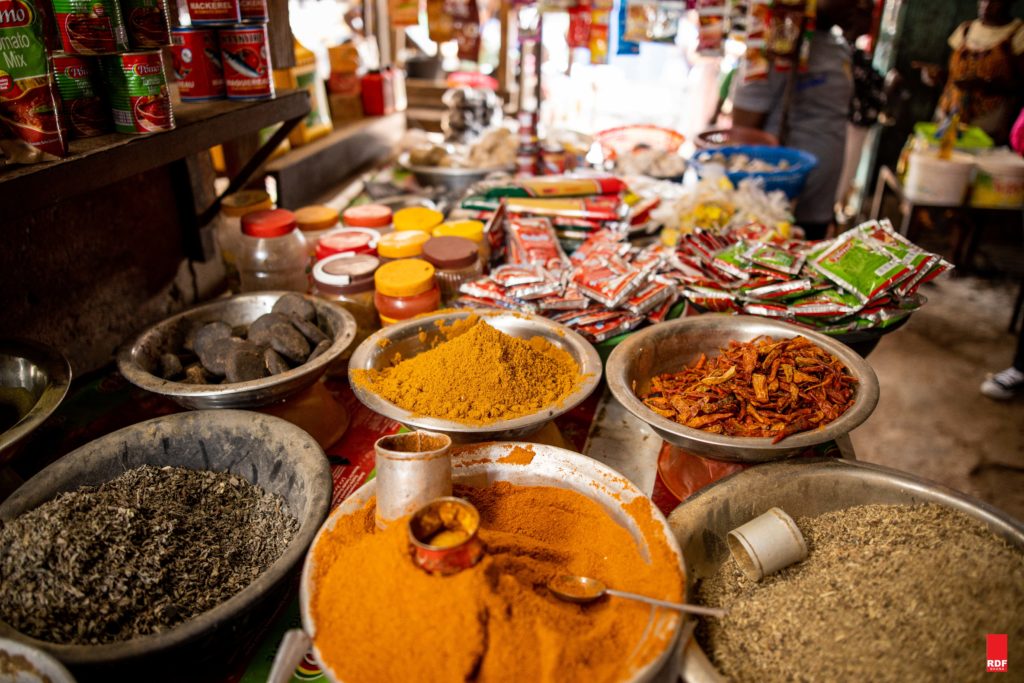
Agriculture and trade – the pair that engender sustainability
According to the Organisation for Economic Co-operation and Development (OECD),
“Trade plays a crucial role in providing livelihoods for farmers and people employed along the food supply chain. It also contributes to reducing food insecurity across the globe and provides greater choice in consumer goods.”
Statistics indicate that trade in foodstuffs has grown strongly over the last two decades, reaching almost 7% in real terms annually between 2001 and 2019. Even though the COVID-19 pandemic led to trade disruptions worldwide, the agricultural and food sector is reported to have demonstrated more resilience than other sectors of the economy. Despite all the successes chalked and the limitless potential of foodstuffs trading, traders continue to face constraints that trickle down to consumers, threatening the stability of the industry.
In Mary’s account of her challenges, she lamented that the cost of food, particularly, maize was shooting up almost every day.
Generally, it is difficult to purchase maize these days because the price keeps soaring. Without sufficient funds, it is impossible to buy grains because the wholesalers no longer give us the goods on credit,” she said
She added that apart from skyrocketing prices, marketing and market linkages are challenges affecting her trade.
To mitigate these challenges, RDF Ghana LBG has since 2018 made funds available to help people like Mary to remain in business. RDF is committed to funding agriculture/agribusiness to enable us to put our theory of change into practice.
RDF’s theory of change states that,
if financial institutions have access to loans and credit guarantees for on-lending; then MSMEs in agriculture and renewable energy will have increased access to working capital and term loans; resulting in the growth of MSMEs engaged in agriculture and renewable energy; leading to increased incomes and creation of new jobs with better opportunities for women.
While the women running hectic marketplaces like this (Makola Market) do not hold official political power, their collective force is what drives the consumer economy of Ghana. Because of this, the government eagerly stays on good terms with the market women.
Consistent collaborative efforts will make the sector thrive
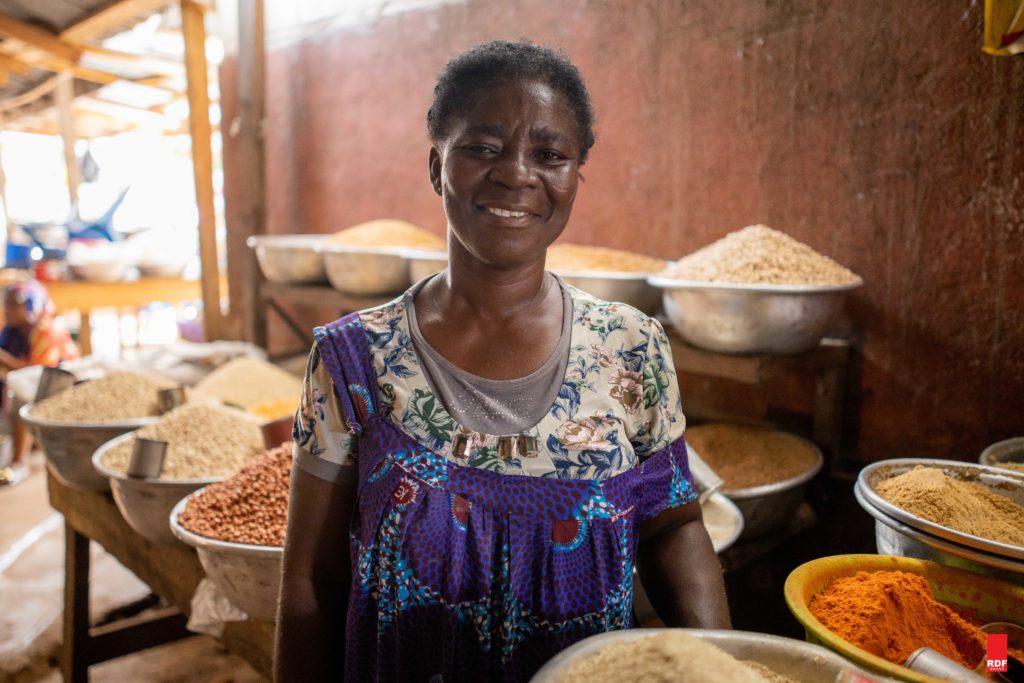
Rebecca Anyimah at her stall
Back to the question of what could go wrong for Mary? Without a check on prices, women like Mary and Rebecca may suffer unduly to stay in business. The burden will be passed on to the consumer who has to pay extra for their daily food. Regardless of the current bottlenecks, RDF Ghana is working with rural and community banks in Ghana to cushion the financial challenges of actors in the agricultural value chain.
